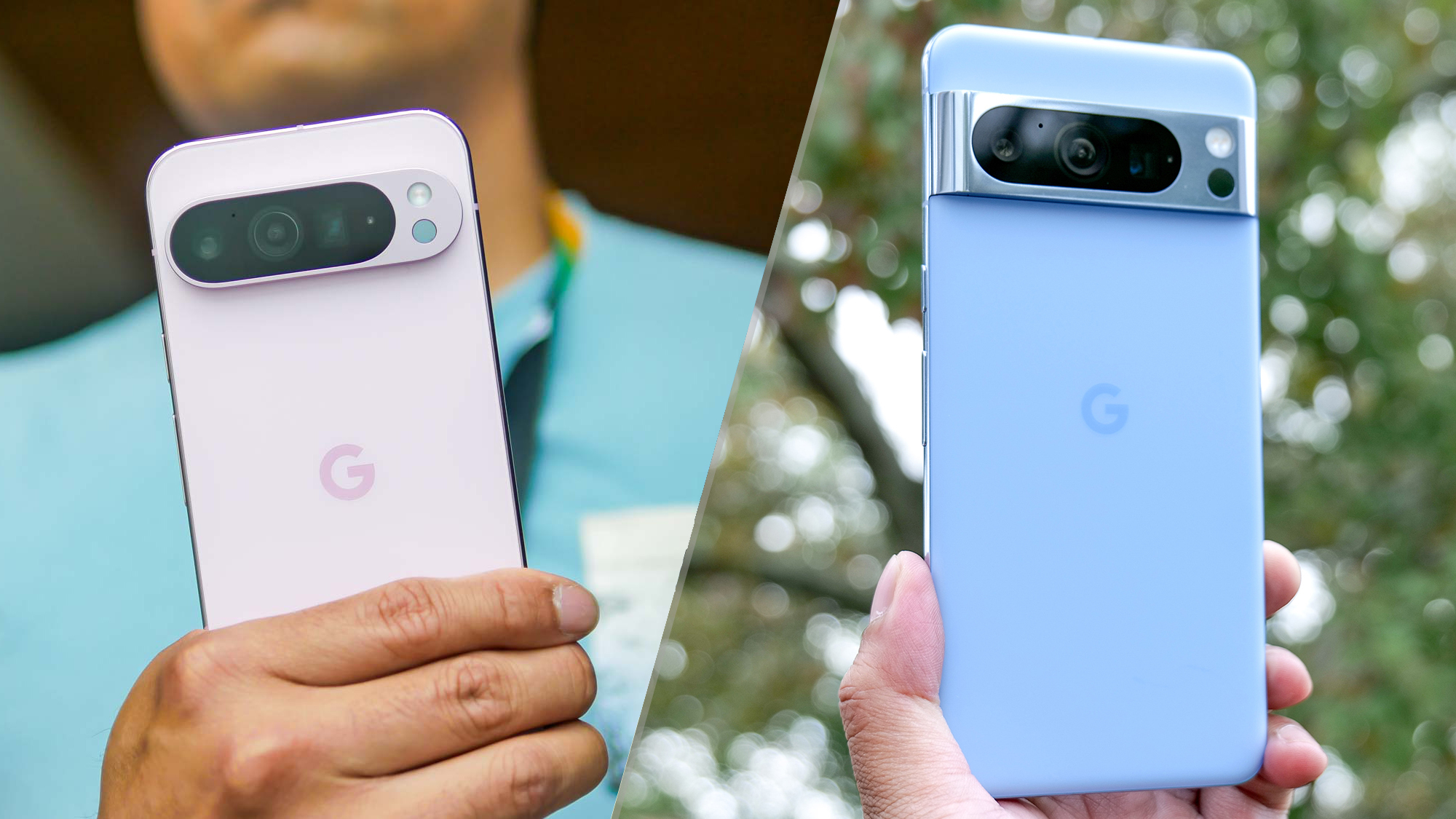
With the launch of the next-generation Pixel phones passing us by, now's the perfect time to see how the Pixel 9 Pro compares to its predecessor — the outgoing Pixel 8 Pro.
The name may have you believe that the Pixel 9 Pro is a straight replacement for the Pixel 8 Pro, but that's not the case. The phone is considerably smaller this year, the same size as the Pixel 9, in fact, whereas the Pixel 9 Pro XL is the one with the larger screen. Though beyond the screen and battery sizes, both phones seem to be more or less identical.
To learn more about what this all means, read on for the breakdown of Pixel 9 Pro vs. Pixel 8 Pro. And if you're hungry for more after that, check out our Google Pixel 9 Pro and 9 Pro XL hands-on review to learn more about both phones — and the differences to look out for between the standard and Pro models.
Google Pixel 9 Pro vs. Pixel 8 Pro: Specs
Google Pixel 9 Pro vs. Pixel 8 Pro: Price and availability
The Google Pixel 9 Pro and Pixel 9 Pro XL will be available to pre-order from August 13, with the XL model going on sale on August 22. Anyone hoping to pick up the smaller Pro model will have to wait, because that phone isn't going on sale until September 26.
Prices for the Pixel 9 start at $999 / £799 while the Xl model starts at $1,099 / £1,099. In both cases that gets you 128GB of storage, but both phones offer up to 1TB for increasingly expensive prices.
The Pixel 8 Pro started at $999/£999/AU$1,699, but we've already seen that price drop significantly over the past several months. Expect the base price to drop even further, with even lower prices during sales events like Black Friday.
Google Pixel 9 Pro vs. Pixel 8 Pro: Design and display
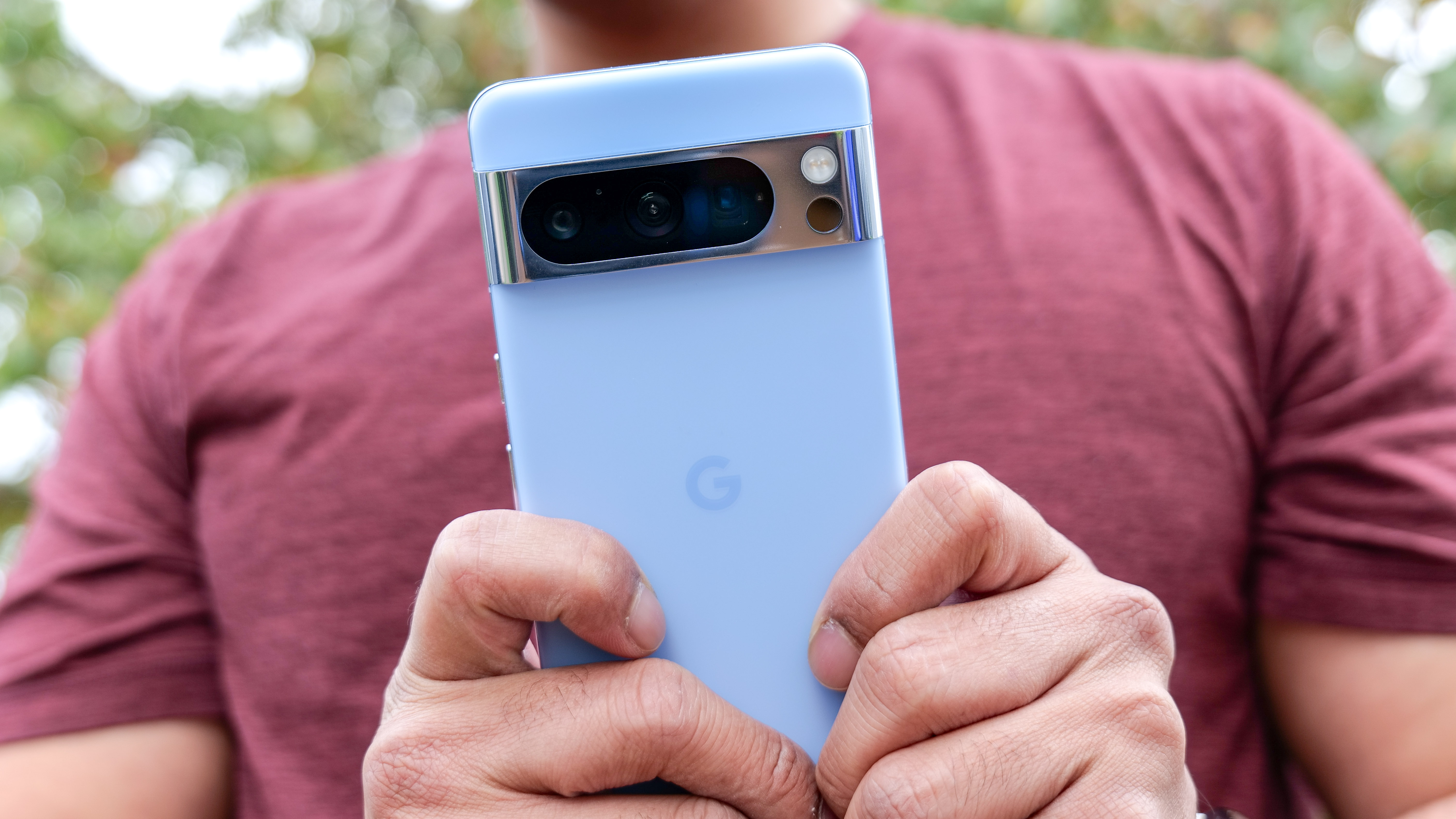
Google's Pixel 8 series is the third generation of Pixels sporting the now familiar rounded corners and horizontal camera bar design. The Pixel 9 series doesn't change the formula too much, but Google has jazzed up the design a little bit.
That means we have slightly more rounded corners and an oval-shaped camera bar on the back of the phone. It's still horizontal and takes up a lot of space, but it doesn't stretch from edge-to-edge like the Pixel 8 Pro's camera bar does.
Google's also reduced the size of the bezels, shaving them down by 15% and ensuring they're uniform around the entire screen. Which is a good thing, considering how chunky and uneven the Pixel 8 Pro's bezels ended up being. Thankfully the flat display has stuck around for another year, and both Pixel 9 Pro and 8 Pro phones feature Gorilla Glass Victus 2 glass on the front and back, plus a matte coating on the back glass.
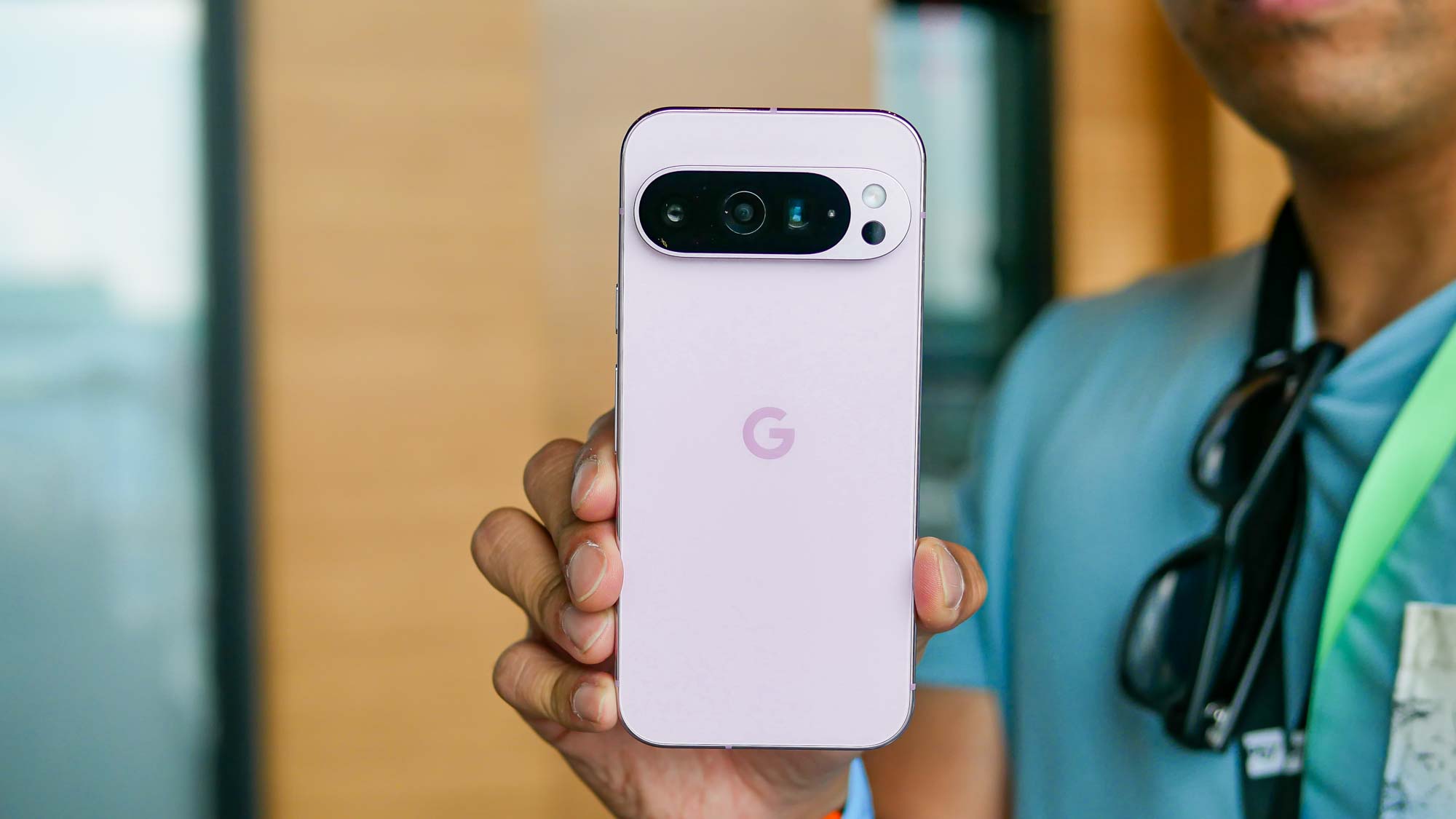
The biggest change is, of course, that there are two Pixel 9 Pro models this year, with the 6.8-inch XL model more closely resembling its predecessor. Meanwhile the 6.3-inch Pixel 9 Pro looks a lot more like the standard Pixel 8, albeit with a telephoto camera lens and other Pro-tier flourishes.
The Super Actua display has also made a comeback, with 2,000 nits of HDR brightness and a peak brightness of 3,000 nits. That's a big jump up from the Pixel 8 Pro's 1,600 not HDR brightness and 2,400 peak — and means both Pixel 9 Pros are some of the brightest phones available right now.
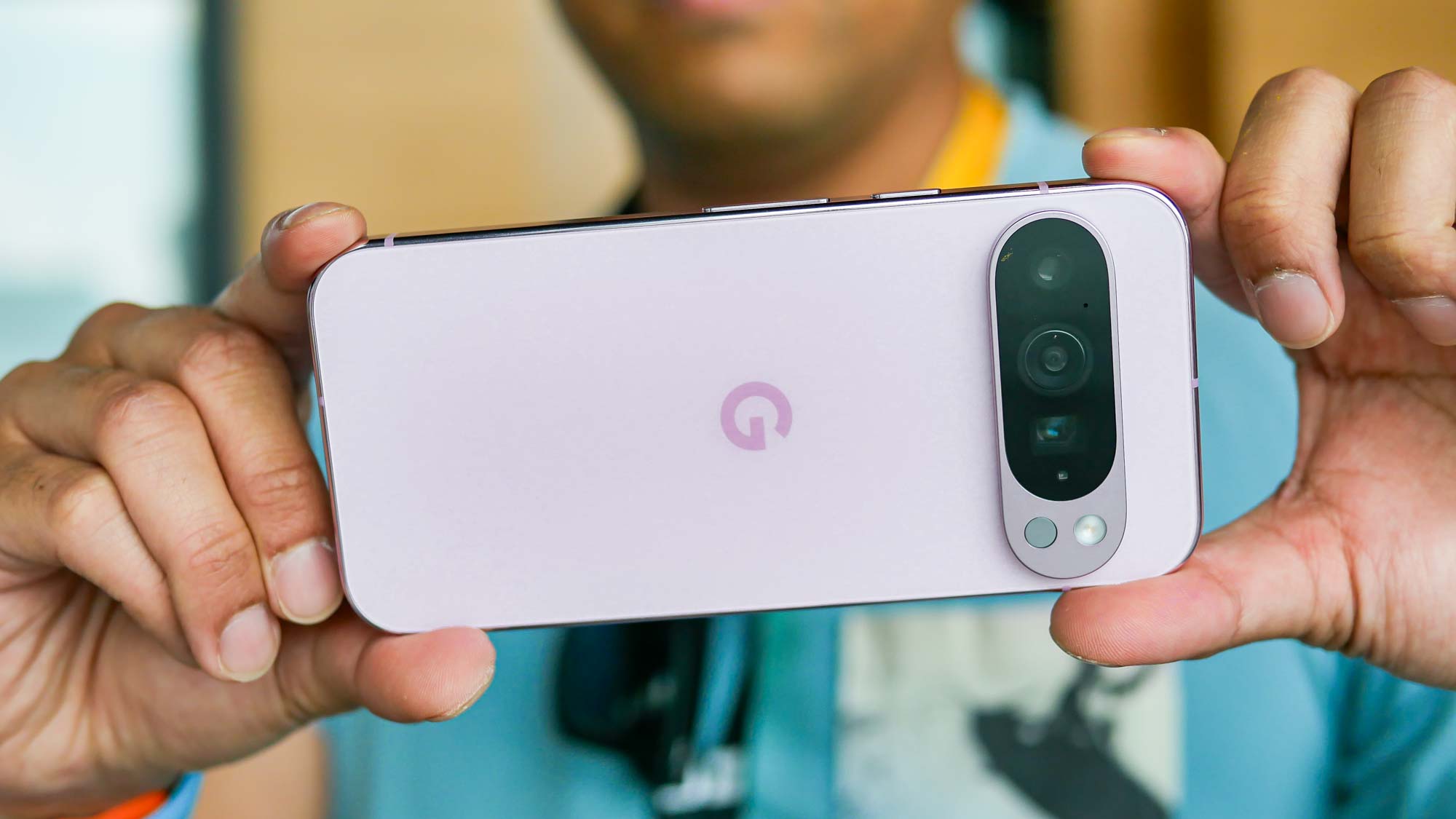
The Pixel 8 Pro has been available in Porcelain White, Obsidian Black, Bay Blue and Mint Green, while the Pixel 9 Pro is available in Obsidian, Porcelain, Hazel and Rose Quartz. The latter two are variations of gray and pink
Google Pixel 9 Pro vs. Pixel 8 Pro: Cameras
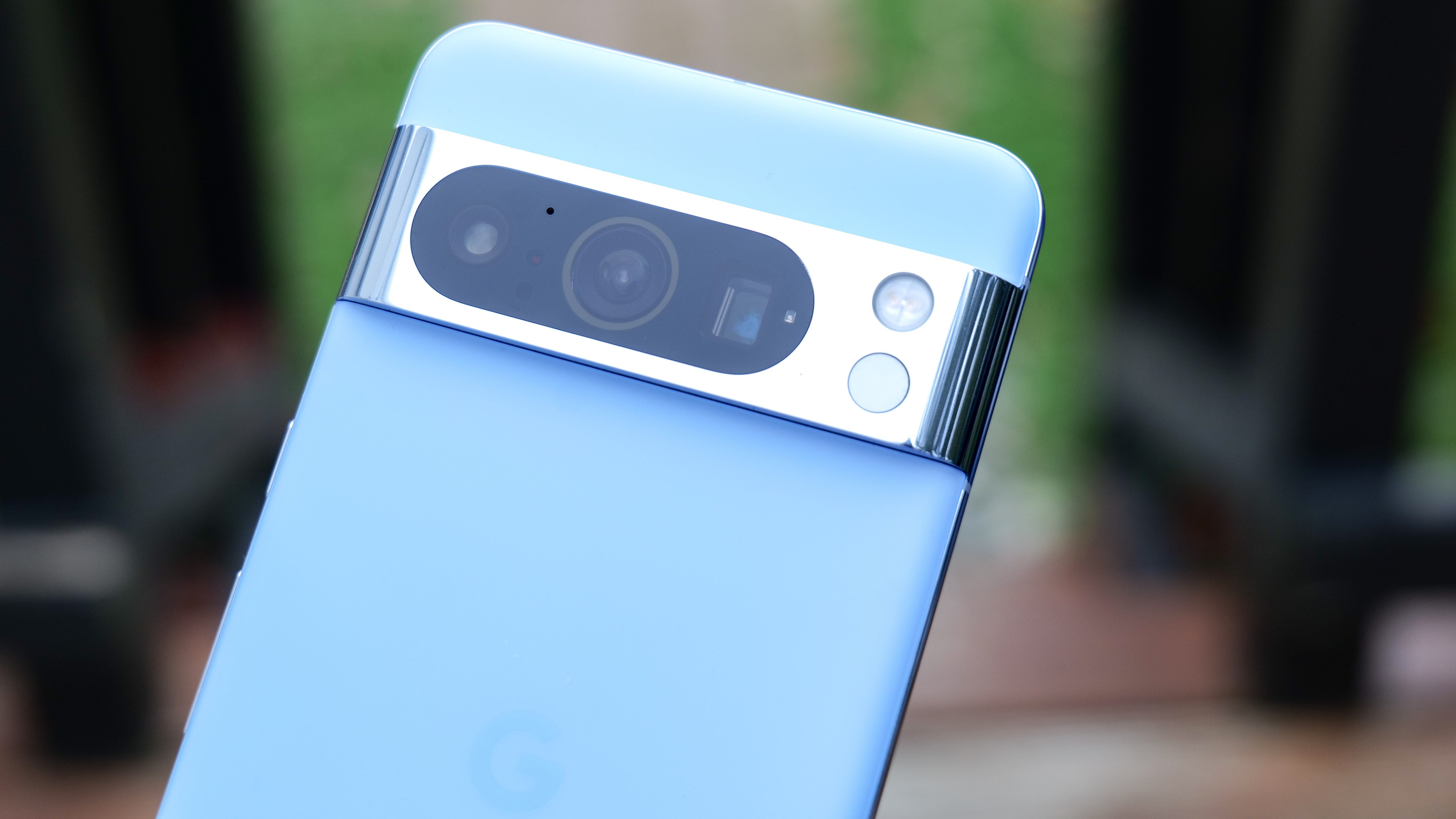
At first glance the rear cameras on the Pixel 9 Pro and Pixel 9 Pro XL don't seem that different from the Pixel 8 Pro. But once you look past the megapixel count you can see that there have been a few upgrades back there, alongside a number of big changes on the front-facing selfie camera.
The Pixel 8 Pro features a 50MP main camera lens, a 48MP ultrawide angle lens and a 48MP telephoto shooter with 5x optical zoom. So do the Pixel 9 Pro and the 9 Pro XL. But while the main and telephoto camera lenses seem to be pretty similar on all 3 devices, the same can't be said about the ultrawide.
The Pixel 8 Pro's ultrawide lens has a f/2.0 aperture and a 125.5-degree field of view, which is pretty respectable for a flagship camera. Meanwhile the ultrawide on this year's models widen that aperture to f/1.7 — which is the same as the main camera lens. The benefit being that the camera can bring in more light which in turns improves photo quality, especially in low light conditions.
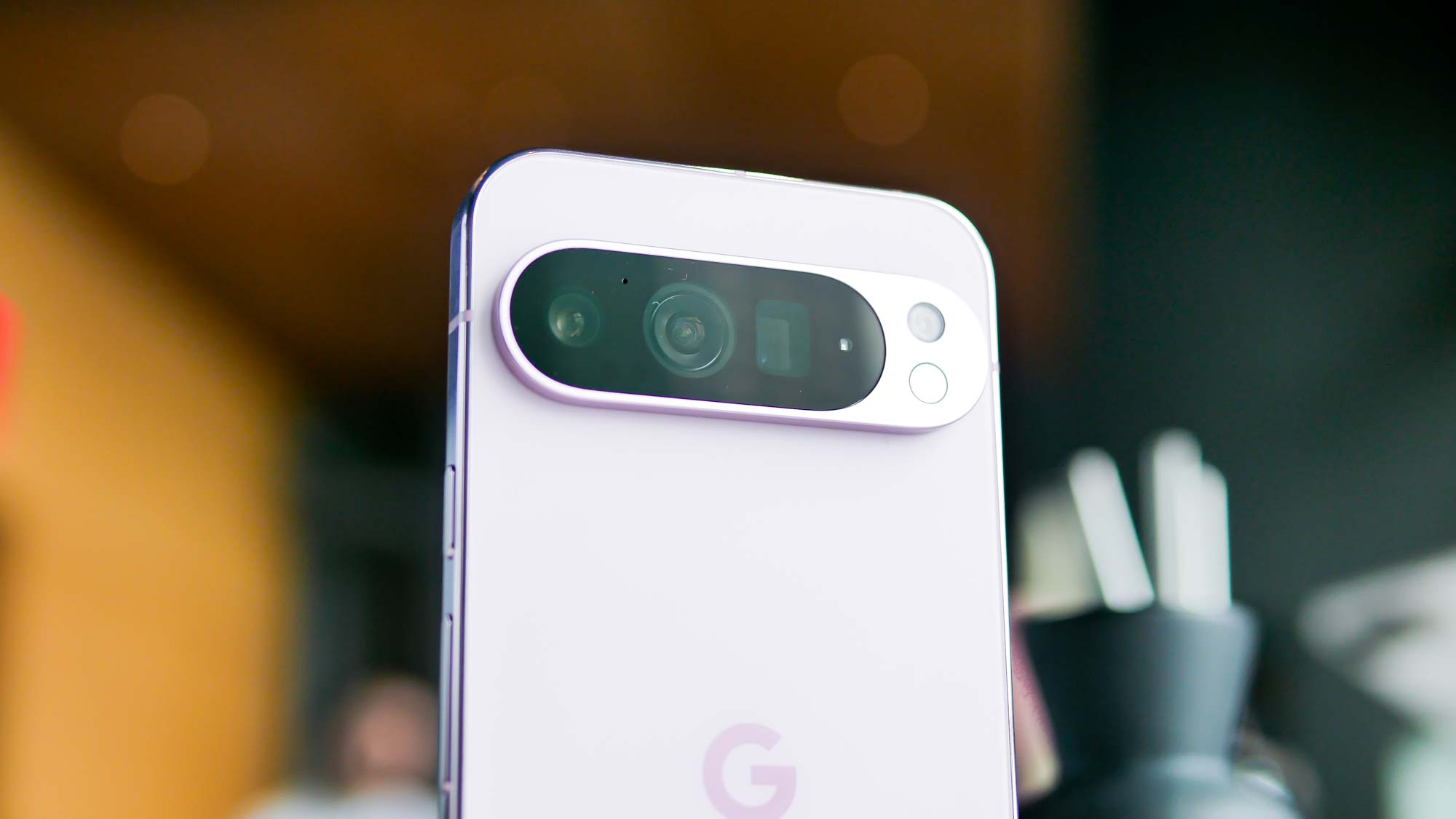
The front camera is where all the biggest changes seem to have happened, though. The Pixel 8 Pro features a 10.5MP selfie camera with a 95-degree field of view. We've seen fancier specs on flagships, but the selfies produced by the 8 Pro are pretty solid.
Both Pixel 9 Pro models push things to another level, offering 42MP of resolution and increasing the field of view to 103-degrees. So not only can you shoot larger and potentially higher quality photos on your front camera, the expanded field of view means you can see more of what's around you.
Google Pixel 9 Pro vs. Pixel 8 Pro: Performance
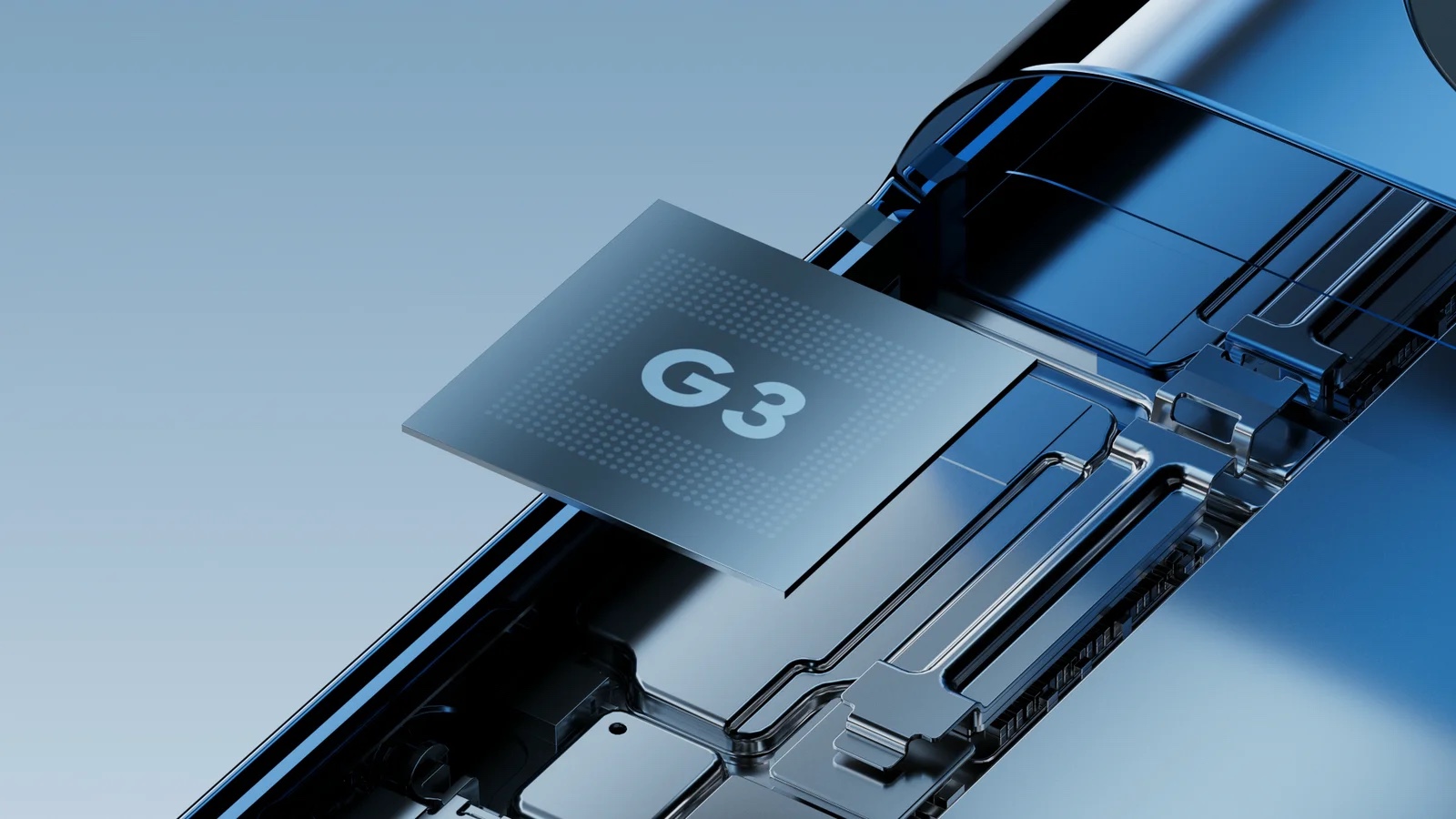
Google's continuing its own Tensor series of chipsets for the Pixel 9 series, meaning the Pixel 9 Pro and Pixel 9 Pro XL are both equipped with a Tensor G4 — the successor to the Tensor G3 you'll find inside the Pixel 8 Pro.
While we haven't been able to do any benchmarking with the Tensor G4, it should prove to be a significantly more powerful chipset than last year. Especially where AI is concerned, with Google promising that the chip has been optimized for use with Google's existing AI features.
A boost to 16GB of RAM, up from 12GB in the Pixel 8 Pro, should also offer benefits in this area — and at the very least should help the Pixel 9 Pro deal with more memory-hungry features as they're happening.
Sadly the default storage is still set at 128GB, with larger options available for money — including 256GB, 512GB and 1TB.
Google Pixel 9 Pro vs. Pixel 8 Pro: Battery and charging
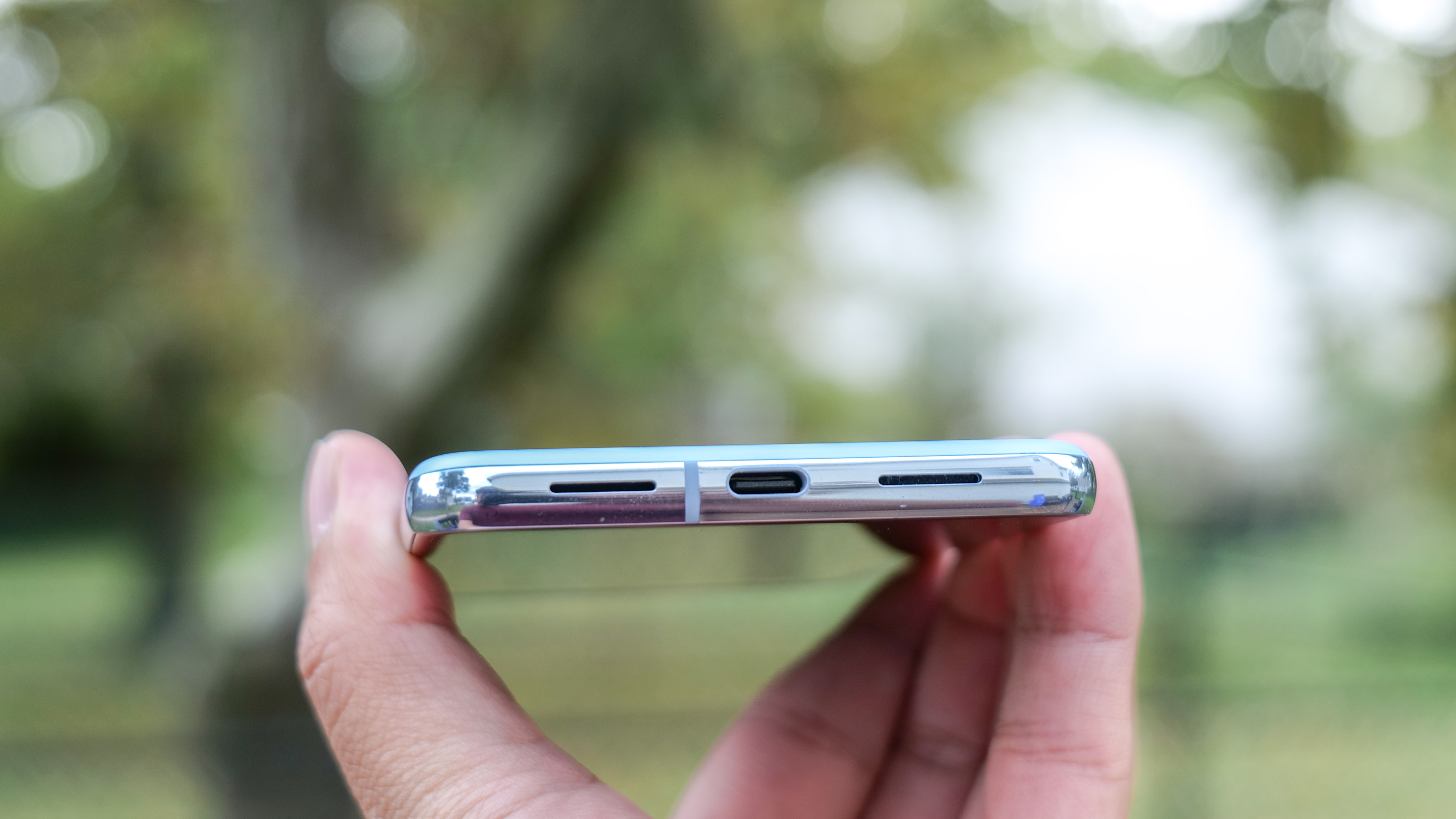
The Pixel 8 Pro came with a 5,050 mAh battery last year, and we had expected the Pixel 9 Pro XL to follow suit — even if the smaller Pixel 9 Pro couldn't squeeze in such a large battery.
The Pixel 9 Pro XL actually boosted its own battery capacity, but only by 10 mAh — with a 5,060 mAh battery inside. Meanwhile the Pixel 9 Pro has a 4,700 mAh battery, which is the same size as the standard Pixel 9. Though both offer more available power than the 4,575 mAh Pixel 8.
The Pixel 8 Pro managed to last 10 hours and 3 minutes in our battery life testing, which is pretty disappointing for a flagship. While we haven't tested the Pixel 9 or Pixel 9 Pro just yet, we hope that Google can exceed this number — or at the very least let it get any worse.
As for charging, the Pixel 9 Pro is actually experiencing a downgrade of sorts. While the Pixel 8 Pro was capable of reaching 30W wired charging speeds, the Pixel 9 Pro is limited to the same 27W as the standard Pixel 9. There's a similar story with wireless charging, with the 9 Pro being able to handle up to 21W with a Pixel Stand 2 wireless charger — compared to the 8 Pro's 23W. Using a standard Qi charger limits you to 12W speeds, which is the same on both models.
Fortunately news isn't quite so bad with the Pixel 9 Pro XL. The larger phone supports up to 37W wired charging with Google's 45W charging brick and 15W wireless charging with a standard Qi charger. Those of you with a Pixel Stand 2 can hit 23W wireless charging speeds just like the Pixel 8 Pro.
Google Pixel 9 Pro vs. Pixel 8 Pro: Software and special features
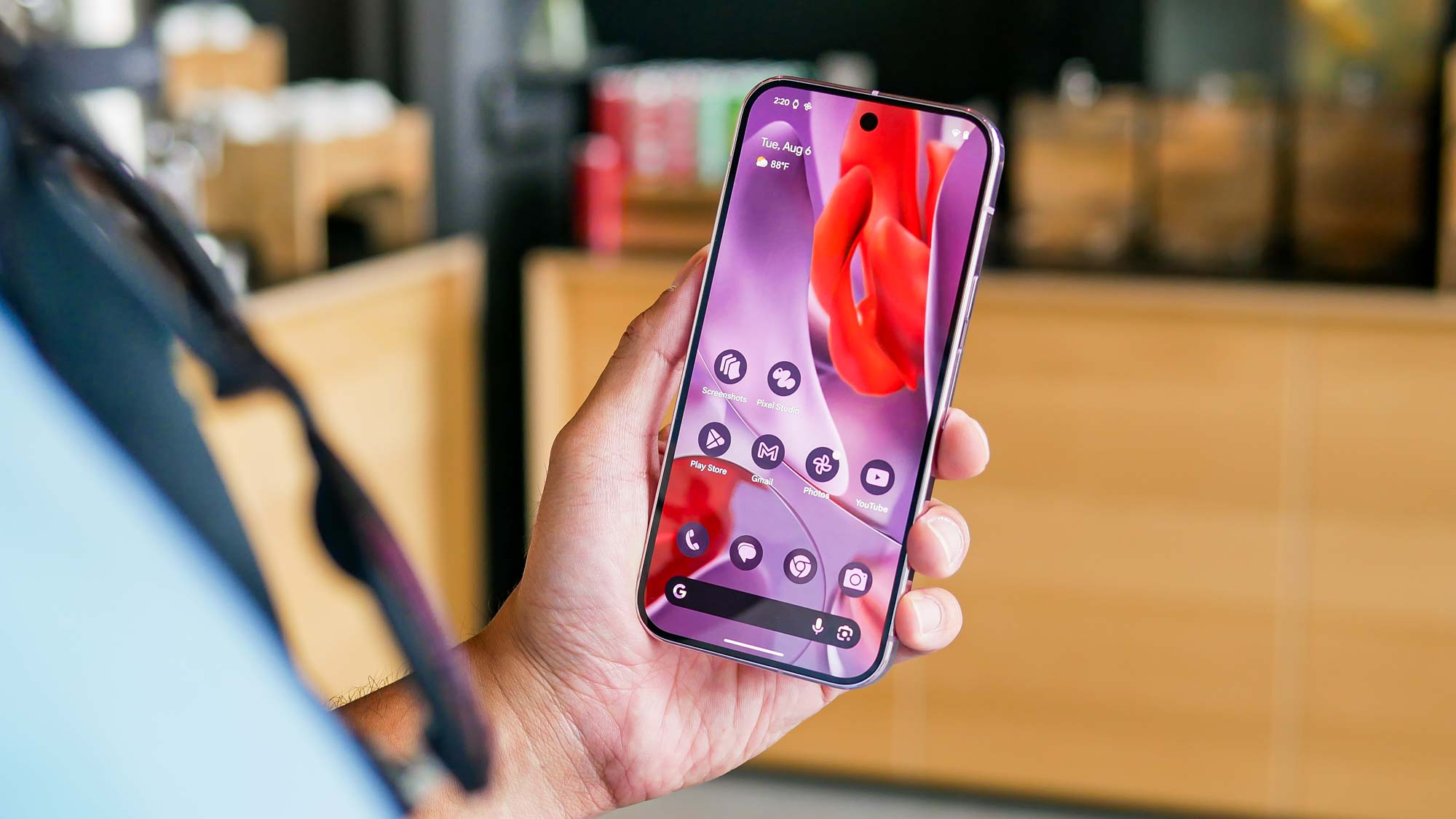
The Pixel 8 Pro focused a lot on AI features, such as the generative abilities of the Magic Editor suite, Best Take mode's ability to combine different faces in one shot, Audio Magic Eraser for cleaning up video audio, and the ability to summarize large volumes of text. And that's not to mention the temperature sensor, which can tell you how hot or cold an object (or more recently a person) is.
It's no surprise that the Pixel 9 Pro and 9 Pro XL have taken everything that's available on the Pixel 8 pro and added more to the pile. Including the temperature sensor, which has returned for another year.
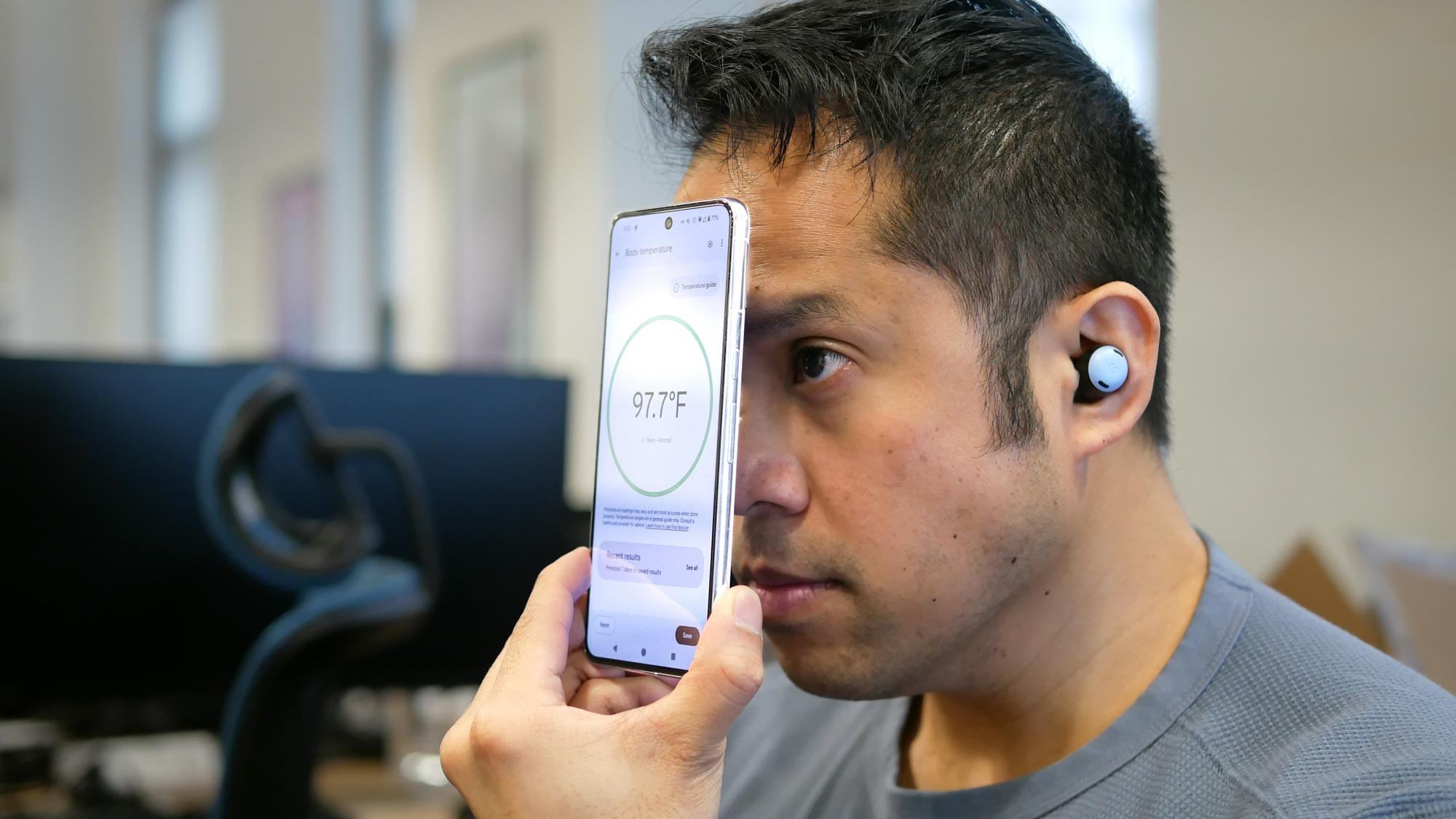
AI is turning into a major selling point for the Pixel 9 series, including both Pro models. Not only does it have more powerful hardware to support on-device Gemini Nano, Google has also made it multimodal — allowing you to interact with Gemini using images, audio, text and speech. Gemini Assistant is also coming along, infusing Google Assistant with AI capabilities, while Gemini Live will let you converse with the chatbot in real time — assuming you pay for a Gemini Advanced subscription.
Other features include Add Me, which utilizes generative AI and AR directions to add a photographer to an existing group photo, while AutoFrame can crop or expand images to improve their look. Pixel Studio allows you to create images from scratch on the Pixel 9 Pro, while ReImagine lets you use written prompts to change the background on existing photos.
Finally we have Magic Lists for auto-populating Google Keep lists, Call Notes for summarizing your phone calls, and the Pixel Screenshots app that can populate and automatically organize al; those screenshots you take and forget about.
And that's not even including all the extra features all three phones will get once Android 15 launches later this year. Because, yep, Android 15 won't be on the Pixel 9 Pro at launch, meaning it'll arrive running Android 14 just like the Pixel 8 Pro.
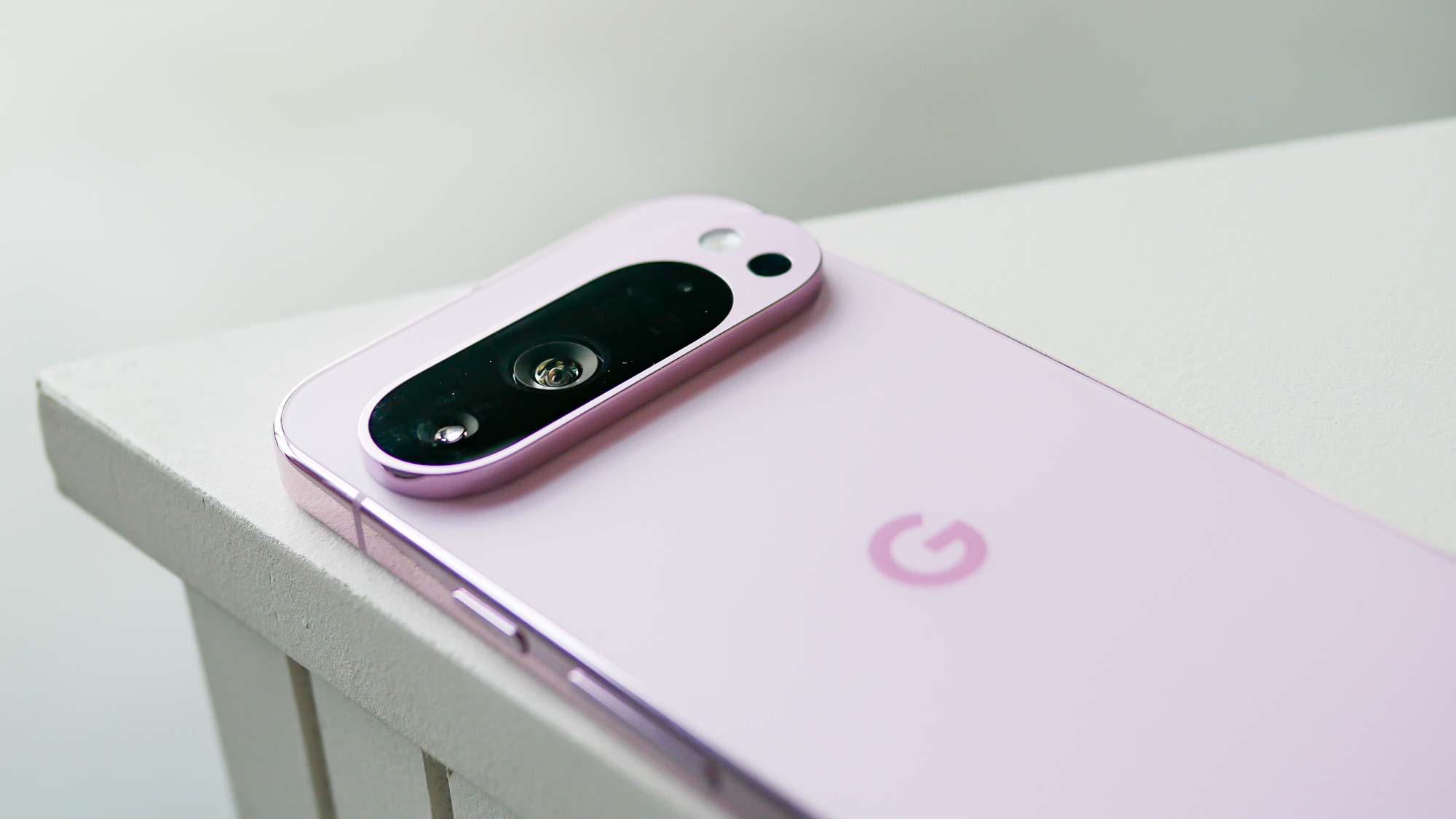
Both phones offer 7 years of software support, which includes full Android and security updates. Google also promised that this 7 year window would also apply to replacement parts, something we hope the company will continue to honor for the Pixel 9 Pro's 7 year lifespan.
The Pixel 9 Pro and 9 Pro XL do come with a year of free access to the Google One AI subscription service, which includes 2TB of storage and Gemini Advanced. Normally this would set you back $240, but Google apparently really wants people to use Gemini Advanced. But you will need to buy your phone before the end of October to qualify.
Google Pixel 9 Pro vs. Pixel 8 Pro: Outlook
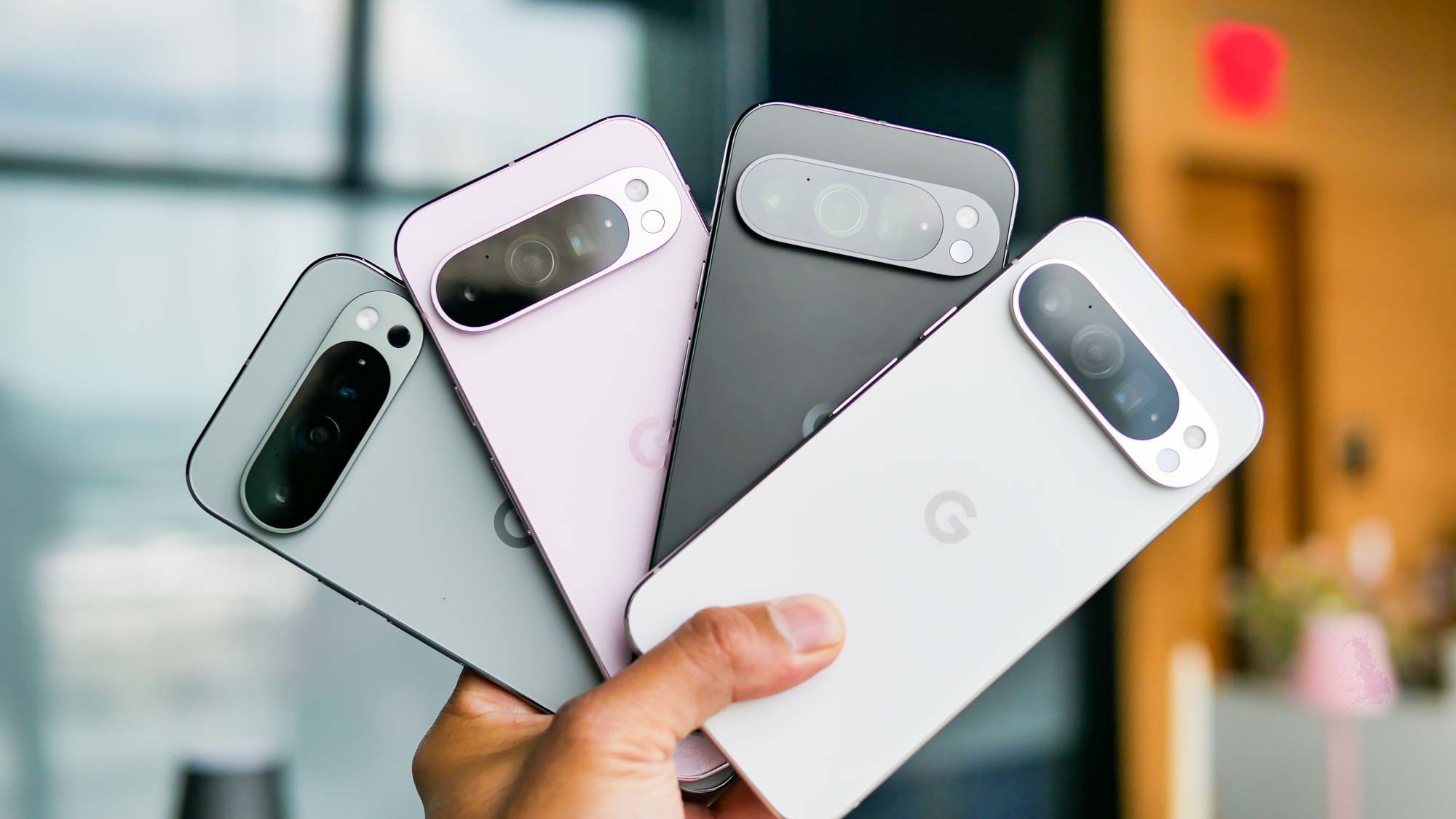
The Pixel 9 Pro sounds like it'll be better than the Pixel 8 Pro, but also quite different in a number of ways considering there are now two different sized models to choose from. While upgrades to cameras and software are important, that dual-size split could be a substantial advantage in drawing in users who want a Pro-level phone without the large screen.
But would all these changes be worth the upgrade from your perfectly good Pixel 8 Pro, or worth spending extra for once the outgoing Pixel starts getting discounted? We can't say at this point, and we'll have to do some thorough testing before we can. However our first impressions from our Google Pixel 9 Pro and 9 Pro XL hands-on reviews are looking positive.
If Google can bolster the power of the Tensor G4 chipset, and ensure the battery life doesn't disappoint for the second year in a row, then we we could have a perfectly rounded pair of phones on our hands.







